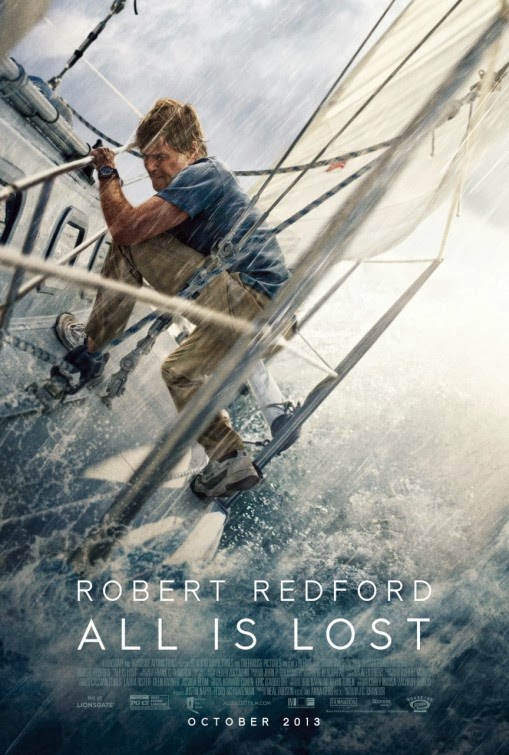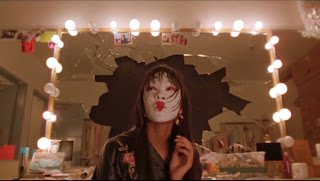Le Passé [The Past]
(2013)
Written & Directed by- Asghar Farhadi
*Bérénice Bejo, Ali Mosaffa, Tahar Rahim, Pauline Burlet, Elyes Aguis
Asghar Farhadi returns with another complex human drama post his award winning-spree for the terrific A Separation.
His latest presentation is one which is even more mystifying and intriguing in ways one couldn't have foreseen.
Farhadi seems in absolute control as he constructs scenes of unfathomable power, surging with emotion and ready to pop at the seams with a bang akin to most action films. Every scene progresses in strokes of brilliance, creating layer upon layer of drama while simultaneously unsheathing the characters' inner dilemma.
Ahmed returns to Paris to carry out his divorce with Marie after being separated for four years. At home, he finds himself caught up in a blitzkrieg of emotions as dark secrets plague the lives of those around him. Marie's elder daughter, Luci is tormented by her mother's impending marriage, while her future husband, Samir is caught up between his new love and comatose wife.
However, despite the convoluted web of relationships, the film is never impeded by its complications. In fact, Farhadi reveals these truths like the twists in a Hitchcockian mystery, yet never overdoing them, rather relishing in their simplistic revelations. It is the aftermath that Asghar Farhadi enjoys exploring.
 We see every character, even the 8-year old Fouad, phenomenally played by Elyes Aguis, struggle with his fears and insecurities. Something which provides it a much darker tone than A Separation, where we had the innocent Termeh as the neutralizing center of all the chaos that unfurled.
We see every character, even the 8-year old Fouad, phenomenally played by Elyes Aguis, struggle with his fears and insecurities. Something which provides it a much darker tone than A Separation, where we had the innocent Termeh as the neutralizing center of all the chaos that unfurled.
I think this grim take testifies Farhadi's flourishing expertise in dealing with human drama. Though everyone is at war with themselves, none seems to betray a proclivity for the melodrama that is somewhat expected of such an emotionally fantastic situation.
The acting is top notch. Bérénice Bejo really bursts onto the screen with a firepower performance that has its proper share of dignified calmness between the dangerous chaos that it braves.
Another great performance is from Tahar Rahim, playing the conflicted Samir, the one who is closest to what could be called a victim, in this whole scenario. His subdued performance only grows through the course of the film and he gets to truly shine in the emotionally crunching final moments.
The child actors too were perfectly picked.
But the best thing about Farhadi's brand of cinema is just how easily he balances all these different elements in one complete picture. From writing a story that overwhelms to tying it to these nifty little techniques which are an inspiration for anyone with a sweet tooth for cinema. I loved how he shot the opening scene of A Separation, and he doesn't disappoint this time as well.
The cinematography is treat. The rich color palette keeps you involved and to an extent even distracted from the high-octane drama that brews like a storm and hits like a tidal wave sweeping you with itself.
Two back to back films which leave you dumbfounded by their surprise and simplicity. They don't make it better than Farhadi.
A terrific drama, exceptionally made and masterfully told, tad inferior to the magnificence of A Separation which still has me gushing over it, three years later.
Rating- 4.3/5
(2013)
Written & Directed by- Asghar Farhadi
*Bérénice Bejo, Ali Mosaffa, Tahar Rahim, Pauline Burlet, Elyes Aguis
Asghar Farhadi returns with another complex human drama post his award winning-spree for the terrific A Separation.
His latest presentation is one which is even more mystifying and intriguing in ways one couldn't have foreseen.
Farhadi seems in absolute control as he constructs scenes of unfathomable power, surging with emotion and ready to pop at the seams with a bang akin to most action films. Every scene progresses in strokes of brilliance, creating layer upon layer of drama while simultaneously unsheathing the characters' inner dilemma.
Ahmed returns to Paris to carry out his divorce with Marie after being separated for four years. At home, he finds himself caught up in a blitzkrieg of emotions as dark secrets plague the lives of those around him. Marie's elder daughter, Luci is tormented by her mother's impending marriage, while her future husband, Samir is caught up between his new love and comatose wife.
 We see every character, even the 8-year old Fouad, phenomenally played by Elyes Aguis, struggle with his fears and insecurities. Something which provides it a much darker tone than A Separation, where we had the innocent Termeh as the neutralizing center of all the chaos that unfurled.
We see every character, even the 8-year old Fouad, phenomenally played by Elyes Aguis, struggle with his fears and insecurities. Something which provides it a much darker tone than A Separation, where we had the innocent Termeh as the neutralizing center of all the chaos that unfurled.I think this grim take testifies Farhadi's flourishing expertise in dealing with human drama. Though everyone is at war with themselves, none seems to betray a proclivity for the melodrama that is somewhat expected of such an emotionally fantastic situation.
The acting is top notch. Bérénice Bejo really bursts onto the screen with a firepower performance that has its proper share of dignified calmness between the dangerous chaos that it braves.
Another great performance is from Tahar Rahim, playing the conflicted Samir, the one who is closest to what could be called a victim, in this whole scenario. His subdued performance only grows through the course of the film and he gets to truly shine in the emotionally crunching final moments.
The child actors too were perfectly picked.
But the best thing about Farhadi's brand of cinema is just how easily he balances all these different elements in one complete picture. From writing a story that overwhelms to tying it to these nifty little techniques which are an inspiration for anyone with a sweet tooth for cinema. I loved how he shot the opening scene of A Separation, and he doesn't disappoint this time as well.
The cinematography is treat. The rich color palette keeps you involved and to an extent even distracted from the high-octane drama that brews like a storm and hits like a tidal wave sweeping you with itself.
Two back to back films which leave you dumbfounded by their surprise and simplicity. They don't make it better than Farhadi.
A terrific drama, exceptionally made and masterfully told, tad inferior to the magnificence of A Separation which still has me gushing over it, three years later.
Rating- 4.3/5

















